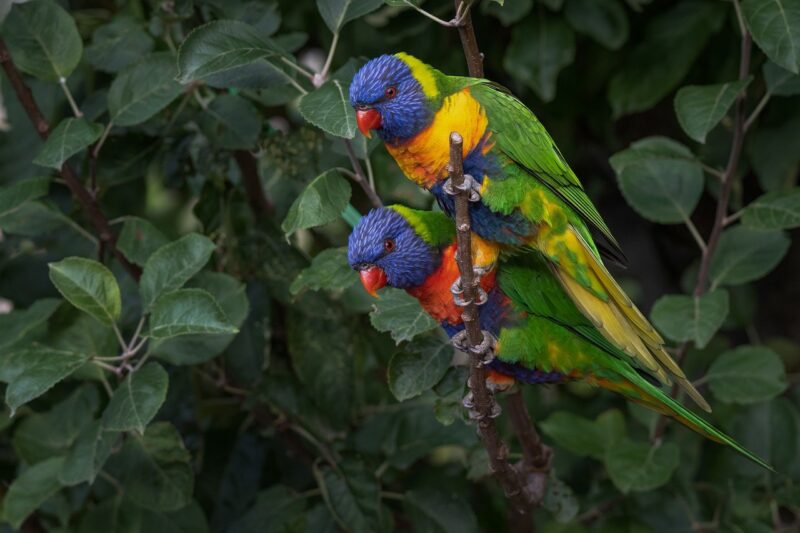
Bringing a pet into your home is a significant decision that requires careful consideration, particularly when it comes to feathered friends like birds and parrots. They aren’t just beautiful creatures; they are intelligent, social beings that require a specific kind of care, attention, and environment to thrive. In this comprehensive guide, we will explore everything you need to know before adding a pet bird or parrot to your family.
1. Understanding Different Bird Species
Before bringing home a pet bird or parrot, it’s vital to understand the various species available. Each type has its unique requirements and temperament. Here are a few popular choices:
- Budgerigar (Budgie): Small, friendly, and relatively easy to care for. Budgies are excellent pets for beginners and can be trained to talk.
- Cockatiel: These birds are known for their affectionate nature and distinctive crest. They can learn to whistle and mimic sounds.
- Lovebirds: Small and social, lovebirds thrive in pairs and require significant bonding time with their owners.
- African Grey Parrot: Highly intelligent and known for their excellent speaking abilities. They require extensive social interaction and mental stimulation.
- Amazon Parrots: These lively birds are incredibly affectionate, but they can also be loud and require ample space for exercise.
Knowing the traits and requirements of each species helps you choose the right bird for your lifestyle and living situation.
2. Financial Commitment
Initially, the cost of acquiring a bird may seem manageable, but long-term care can be considerably expensive. Here are some financial aspects to consider:
- Cage and Accessories: A sturdy, spacious cage is essential for the bird’s safety and comfort. Additionally, you will need toys, perches, food and water dishes, and a variety of accessories, all of which can add up quickly.
- Food and Treats: Birds require a balanced diet that includes high-quality pellets, fresh fruits, and vegetables. Specialty foods can also be quite costly depending on the species of bird you have.
- Veterinary Care: Regular check-ups and the potential costs of medical care can be significant, especially for larger or more exotic species that require specialized care.
- Grooming Supplies: Depending on the bird, you may need grooming supplies, including nail clippers, bird baths, or sprays to keep their feathers in peak condition.
Preparing for these ongoing costs ensures you provide a suitable home for your feathered friend.
3. Time and Attention
Birds are social creatures and, contrary to popular belief, they don’t thrive on minimal interaction. Here are some time-related considerations:
- Daily Interaction: Birds require daily socialization and mental stimulation. Plan to spend at least one to two hours each day interacting with your bird through play, training, or simply sitting together.
- Training and Enrichment: Engaging your bird in training sessions not only builds a bond but also provides mental stimulation. Teaching your bird tricks or allowing them to explore safe new surroundings adds positive stimulation to their daily routine.
- Cage Time vs. Out Time: Setting aside time for your bird to be out of their cage is crucial. Regular out-of-cage time allows them to exercise and explore in a safe environment—supervised, of course!
Understanding the time commitment ahead of time helps prevent neglect or behavioral issues that arise from lack of interaction.
4. Space Requirements
Birds need a suitable living environment to flourish. Consider the following:
- Cage Size: The size of the cage should accommodate your bird’s wingspan, allowing for comfortable movement. The bigger, the better! A cramped environment can lead to stress and health issues.
- Safe Flight Areas: If your bird is permitted to fly around the house, ensure they can do so safely. Remove hazards, cover windows, and be mindful of ceiling fans or open doors that may pose risks.
- Social Areas: Integrate places where your bird can comfortably interact with family members, minimizing their feeling of isolation when you are busy or away.
The right space and setup will enhance your bird’s quality of life and prevent unnecessary stress.
5. Ensuring a Healthy Environment
Creating a safe and nurturing environment is essential for your pet bird’s well-being. Consider these aspects:
- Air Quality: Birds are sensitive to airborne contaminants. Avoid using non-stick cookware, candles, and chemical cleaners that may release toxins into the air. Instead, choose bird-safe products and ensure good ventilation in your home.
- Temperature Control: Ensure that your bird’s living area maintains a comfortable temperature; sudden temperature changes can be harmful. Birds generally thrive in temperatures between 65°F and 85°F (18°C to 29°C).
- Bird-Proofing Your Home: Remove or secure hazards such as toxic plants, open water sources, or small objects that birds can ingest. Safety is paramount in their living environment.
Taking the time to prepare your home will contribute significantly to your pet’s health and happiness.
6. Long-Term Commitment
Birds and parrots can have long life spans, which means bringing one into your home is a long-term commitment. Here’s what you should ponder:
- Lifespan: Depending on the species, birds can live anywhere from 5 to over 50 years! Make sure that you are ready for the next phase of your life that includes caring for your feathered companion for years to come.
- Legacy Planning: What happens to your bird if you can no longer care for them? Consider discussing your plans with family or friends to ensure they are well taken care of in the future.
Recognizing the long-term nature of bird ownership means you’ll be ready to provide a loving home throughout your pet’s life.
Conclusion
Bringing home a pet bird or parrot can be an incredibly rewarding experience, but it requires careful consideration and planning. By understanding different species, committing to financial and time obligations, ensuring a safe environment, and recognizing this long-term commitment, you will be well-prepared to welcome a feathered friend into your life. Take your time to research and reflect, ensuring that your decision aligns with your lifestyle and capabilities to provide a loving and fulfilling home for your new companion.
If you’re ready to bring a pet bird into your life, make sure you’re informed and prepared to help your feathered friend live a happy and healthy life.







